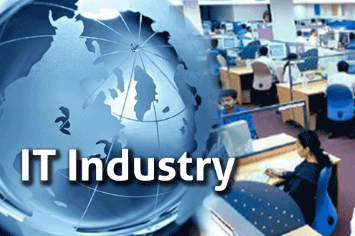Technology: Shaping Our World
Introduction
Technology has become an undeniable force, shaping our world in profound and often unexpected ways. From the moment we wake up to the time we go to sleep, technology is interwoven into the fabric of our daily lives. This article will delve into the multifaceted ways in which technology is transforming our world, examining its impact on various aspects of society and exploring the challenges and opportunities that lie ahead.
1. Communication Revolutionized
- Instant Global Connectivity: Technology has revolutionized communication, connecting people across geographical boundaries in ways previously unimaginable. Social media platforms, instant messaging apps, and video conferencing tools have broken down barriers and fostered global interconnectedness.
- The Rise of Remote Work: The rise of remote work, facilitated by technologies like video conferencing and cloud computing, is transforming the traditional workplace and offering greater flexibility and autonomy for many.
- Evolving Communication Styles: The digital age has also given rise to new forms of communication, such as emojis, GIFs, and memes, which have become integral to modern-day interactions.
2. The Workplace Transformed
- Automation and Artificial Intelligence: Automation and artificial intelligence (AI) are transforming the workplace, automating repetitive tasks and augmenting human capabilities. While this can lead to job displacement in some sectors, it also creates new opportunities in fields such as data science, AI development, and cybersecurity.
- The Gig Economy: The rise of the gig economy, facilitated by online platforms, has created new avenues for employment and entrepreneurship, offering flexibility and autonomy for many workers.
- The Importance of Digital Skills: In today's digital age, a strong foundation in digital skills, such as coding, data analysis, and digital literacy, is essential for success in the workforce.
3. Education Reimagined
- Online Learning and E-learning Platforms: Online learning platforms and e-learning resources are democratizing access to education, providing learners with flexibility and access to a wealth of knowledge and expertise.
- Personalized Learning: Technology is enabling personalized learning experiences, tailoring education to individual student needs and learning styles.
- The Role of Technology in the Classroom: Technology is transforming the classroom, with interactive whiteboards, educational software, and online resources enhancing the learning experience.
4. Healthcare Revolutionized
- Telemedicine and Remote Patient Monitoring: Telemedicine and remote patient monitoring are improving access to healthcare, particularly in remote and underserved areas.
- AI in Healthcare: AI is playing an increasingly important role in healthcare, assisting with diagnosis, drug discovery, and personalized medicine.
- Wearable Technology: Wearable devices are empowering individuals to take control of their health, tracking fitness data, monitoring vital signs, and providing valuable insights into their overall well-being.
5. Entertainment Redefined
- Streaming Services and On-Demand Content: Streaming services and on-demand content have revolutionized the entertainment industry, providing consumers with unprecedented access to movies, TV shows, music, and other forms of entertainment.
- Virtual and Augmented Reality: Virtual reality (VR) and augmented reality (AR) are transforming the entertainment landscape, offering immersive and interactive experiences that blur the lines between the real and virtual worlds.
- Social Media as a Platform for Entertainment: Social media platforms have become major platforms for entertainment, with users sharing videos, music, and other forms of creative content with global audiences.
6. The Rise of the Sharing Economy
- Platforms Connecting People: Online platforms are connecting people and facilitating the sharing of resources, from transportation (ride-sharing) and accommodation (home-sharing) to skills and expertise (freelancing platforms).
- Sustainability and Efficiency: The sharing economy promotes sustainability and efficiency by optimizing the utilization of resources and reducing waste.
- The Impact on Traditional Industries: The rise of the sharing economy is disrupting traditional industries, challenging established business models and creating new opportunities for innovation.
7. The Challenges of Technology
- Digital Divide: The rapid advancement of technology can exacerbate existing inequalities, creating a digital divide between those who have access to technology and those who do
not. - Job Displacement: Automation and AI have the potential to displace jobs in certain sectors, leading to economic disruption and social inequality.
- Data Privacy and Security: The collection and use of personal data raise concerns about privacy and security. Data breaches, cyberattacks, and the misuse of personal information pose significant risks.
- The Impact on Mental Health: Excessive use of technology can have negative impacts on mental health, contributing to anxiety, depression, and social isolation.
- The Environmental Impact: The production and use of technology can have significant environmental impacts, from the extraction of raw materials to the disposal of electronic waste.
8. The Future of Technology
The future of technology holds immense potential, with advancements in areas such as artificial intelligence, biotechnology, and space exploration poised to reshape our world in profound ways. However, it is crucial to:
- Invest in Education and Training: Equip individuals with the skills and knowledge necessary to thrive in a technology-driven world.
- Promote Responsible Innovation: Encourage ethical development and use of technologies, prioritizing human values and societal well-being.
- Address the Digital Divide: Ensure equitable access to technology and digital literacy for all.
- Foster International Collaboration: Address global challenges such as climate change and pandemics through international cooperation and technological innovation.
- Engage in Ongoing Dialogue and Debate: Continuously engage in discussions about the societal implications of technology and develop appropriate policies and regulations.
Conclusion
Technology is an undeniable force that is shaping our world in profound and multifaceted ways. While it presents both challenges and opportunities, it is crucial to harness its potential for the betterment of society. By embracing responsible innovation, investing in education and training, and addressing the ethical and societal implications of emerging technologies, we can ensure that technology serves as a force for good, enhancing human lives and creating a more sustainable and equitable world for all.
Disclaimer: The information provided in this article is for general informational purposes only and should not be construed







